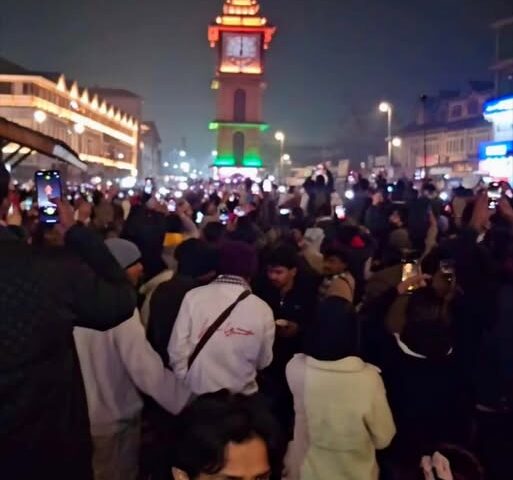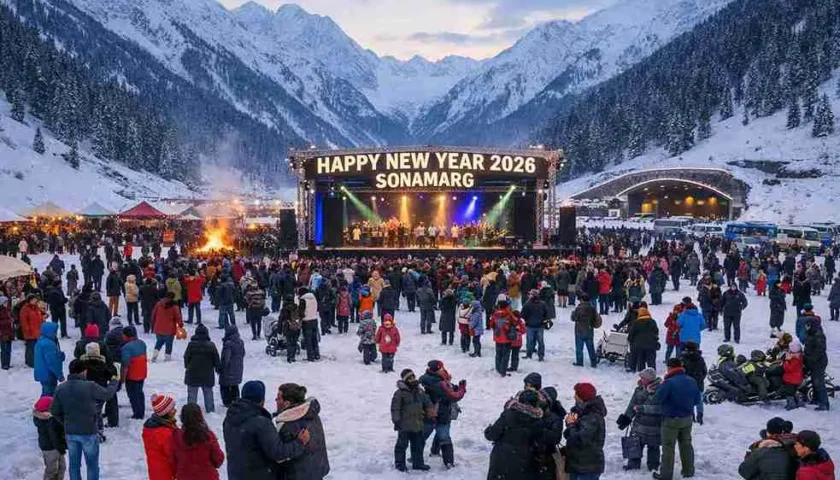Historic Nedous Hotel in Gulmarg Served Eviction Notice After 137 Years of Legacy
By: Javid Amin | 02 August 2025
A Storied Landmark Under Siege
One of Kashmir’s oldest and most storied landmarks—the 137-year-old Nedous Hotel in Gulmarg—is now at the heart of a legal and cultural storm. Once a glittering jewel in Kashmir’s hospitality crown, the hotel has been served an eviction notice by the Jammu & Kashmir government, marking a dramatic fall from grace for a property woven deeply into the Valley’s colonial, political, and cultural fabric.
What Triggered the Eviction?
The eviction order, issued this week, follows years of legal wrangling and lapsed lease agreements:
-
Original lease agreements expired in 1985, and the Nedous family allegedly failed to renew them thereafter.
-
In 2015, the J&K government formally rejected lease renewal, citing unauthorized land occupation.
-
Both the J&K High Court and Supreme Court upheld the government’s position, categorizing the property as encroachment on public land.
-
The hotel currently occupies approximately 98 kanals and 11 marlas (~12.25 acres) of prime government land in Gulmarg, a high-value tourist destination.
Authorities have now directed the immediate vacation of the premises, with police and magistrates placed on standby to ensure a peaceful transition.
A Deeply Rooted Legacy in Kashmir’s History
The Nedous Story
Founded in 1888 by Michael Adam Nedou, a European entrepreneur who was instrumental in developing Gulmarg as a hill station, Nedous Hotel quickly became the embodiment of colonial elegance in pre-independence India.
Over the decades, the hotel hosted:
-
British officers and Indian royalty
-
Prominent political figures
-
Bollywood film crews and foreign dignitaries
Political Ties: The Abdullah-Nedou Connection
The Nedous legacy is also intimately tied to Kashmir’s modern political history:
-
Harry Nedou, a descendant of the hotel’s founder, was the father of Akbar Jahan, who later married Sheikh Muhammad Abdullah, the founding leader of the National Conference (NC) and one of Kashmir’s tallest political figures.
This familial bond between the Nedous and Kashmir’s first political family adds a symbolic weight to the hotel’s status—a reminder of how Kashmir’s colonial past, political awakening, and tourism boom intersected under its roof.
Heritage vs. Legal Compliance: A Complex Debate
The government’s decision to evict the Nedous Hotel has ignited polarized reactions across civil society, heritage conservationists, and political observers.
Arguments in Favor of Eviction:
-
Rule of Law: Lease expiration and court rulings affirm the hotel’s illegal occupation of government land.
-
Public Accountability: Authorities are under pressure to recover encroached land and enforce land-use regulations fairly, especially in ecologically sensitive areas like Gulmarg.
-
Environmental Concerns: Gulmarg faces mounting pressure from unchecked tourism, prompting calls for sustainable development and de-commercialization.
Arguments Against:
-
Cultural Loss: Nedous is not just a business—it’s a living heritage site that reflects Kashmir’s unique blend of colonial, local, and political history.
-
Tourism Value: As a long-standing luxury destination, it contributes significantly to local tourism revenues and employment.
-
Symbolic Importance: The hotel stands as a witness to Kashmir’s transformation from colonial outpost to conflicted paradise—its erasure raises questions about memory, identity, and state policy.
The Hotel in Popular Culture and Memory
For many Kashmiris, Nedous Hotel is more than bricks and mortar. It is:
-
A site of nostalgia for family vacations and honeymoons.
-
A frequent backdrop in classic Bollywood cinema.
-
A cherished venue for weddings, dignitary stays, and elite gatherings.
Its Swiss-style wooden architecture, panoramic Gulmarg views, and colonial charm set it apart from the modern concrete sprawl of newer resorts.
“It’s heartbreaking. My grandparents stayed there on their honeymoon. It’s part of our family’s story,” said a local Srinagar resident.
What’s Next?
Authorities have signaled they will proceed with the eviction, and may repurpose or redevelop the land for public or tourism-related use. However, no clarity has emerged on whether the structure itself will be preserved, relocated, or demolished.
There are calls for converting the property into a heritage museum or cultural center, retaining the structure while changing its function.
Final Word: Between Law and Legacy
The eviction of the Nedous Hotel is more than just a real estate dispute—it reflects Kashmir’s complex dance between heritage, legality, and development. In a region where history is politics, the fate of a hotel can spark debates about identity, memory, and justice.
Is the state enforcing rightful legal order, or erasing yet another page from Kashmir’s cultural diary?
In the coming weeks, as the hotel doors potentially close for the last time, this question will linger far beyond the snowy meadows of Gulmarg.




